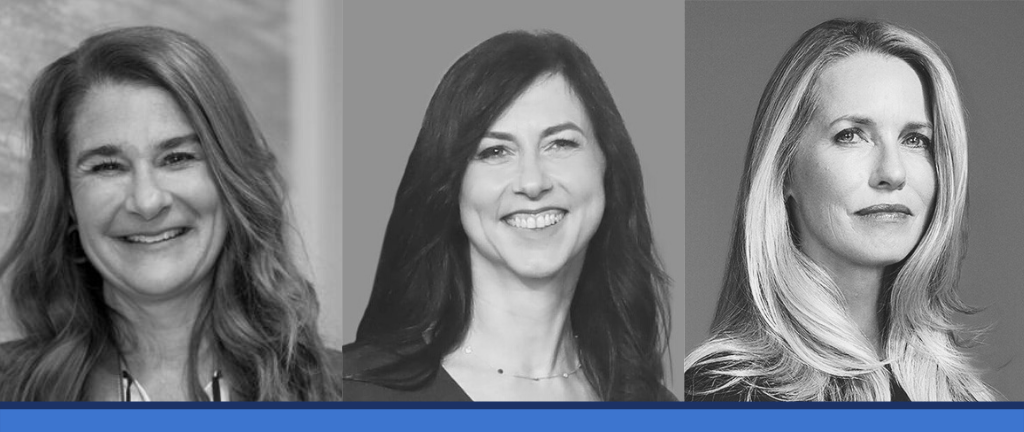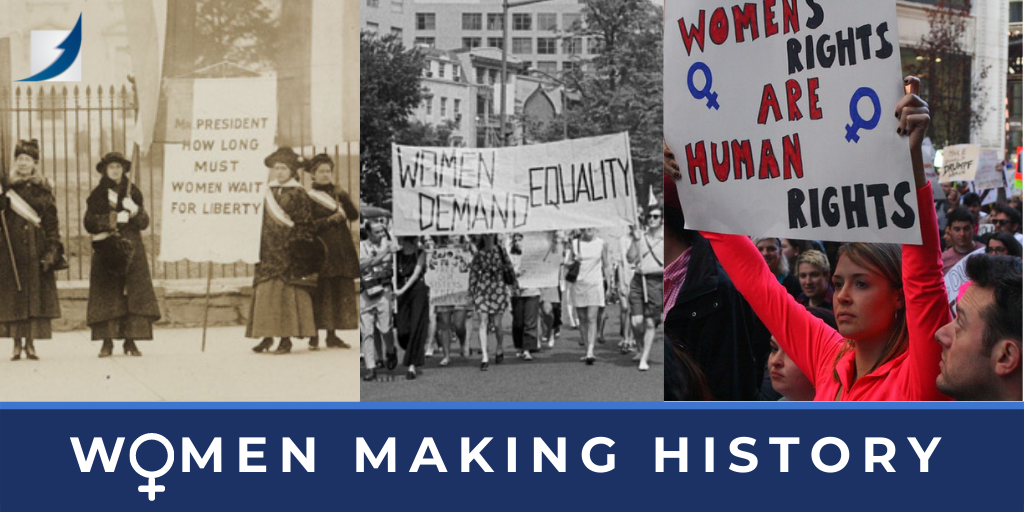The Female Face of Philanthropy
By Julia Kathan, Chief Communications Officer
March means a lot of things to a lot of people. Welcoming the arrival of spring. Filling out March Madness brackets. Celebrating St. Patrick’s Day. And, perhaps most significantly, it means observing Women’s History Month.
While taking 31 days to mark women’s contributions is important, we see women in the fields of nonprofits, fundraising and charity making a difference every day, every month as leaders, staff members, donors, volunteers and advocates.
And we see that the most prominent faces and voices of philanthropy are increasingly female. Cases in point:
Melinda French Gates, MacKenzie Scott and Laurene Powell Jobs.

From left: French Gates, Scott, Powell Jobs
Three women who have stepped out of the shadows of the men with whom they were once best known – Bill Gates, Jeff Bezos and Steve Jobs – to give away billions of dollars from their own vast fortunes, and pledge to do even more.
But as Melinda French Gates notes, the idea of giving back goes way beyond a financial ledger, and applies to everyone.
“Philanthropy is not about the money. It’s about using whatever resources you have at your fingertips and applying them to improving the world.”
And, she says, improving the world means making life better for women and girls everywhere.
“Being a feminist means believing that every woman should be able to use her voice and pursue her potential, and that women and men should all work together to take down the barriers and end the biases that still hold women back.”
Just one of the ways French Gates and Scott have been lifting other women is through their Equality Can’t Wait Challenge, which awarded millions of dollars to organizations working to foster gender equality. And in founding her Emerson Collective, Powell Jobs (a New Jersey native, by the way) quoted the organization’s namesake Ralph Waldo Emerson, who said, “In one soul, in your soul, there are resources for the world.”
At The Munshine Group, we are continually enlightened and inspired by the work of the Lilly Family School of Philanthropy at IUPUI, and the research done by its Women’s Philanthropy Institute, which studies how and why gender matters in philanthropy.
Among the Institute’s key findings are:
- Women’s wealth is rising. Women’s share of wealth has risen considerably over the past 50 years, and today they hold around 40% of global wealth.
- Women are more likely to give. Across income levels and generations, women are more likely to give, and give more than their male counterparts.
- Women give differently. From motivations to causes to behavior, women and men demonstrate different giving patterns.
Forbes recently noted that Melinda French Gates and MacKenzie Scott are leading an increasing shift in the focus of philanthropy, to what’s seen as a more “trust based” approach, where, as the article describes it, “donors seek to address power imbalances with grantees.”
French Gates says it’s “important to place trust in the people and organizations we partner with and let them define success on their own terms.”
Scott champions allowing grantees to “speak for themselves” and we “trust the track records of impact and on-the-ground insights of hundreds of carefully selected teams working from within communities.”
This trust and giving more of a voice to those on the frontlines on how best to spend donations seem to be resonating.
Women have long been a driving force in philanthropy, but there is much to be done. The most recent Women’s Philanthropy Institute findings show “philanthropic support for women’s and girls’ organizations remains a small share of overall charitable giving, at $8.2 billion or 1.9% in 2018.”
In 2019, Melinda French Gates published her book Moment of Lift, with a crucial subtitle: How Empowering Women Changes the World. She writes, “If you want to lift up humanity, empower women. It is the most comprehensive, pervasive, high-leverage investment you can make in human beings.”
As we mark Women’s History Month for 2022, we honor all who are empowering women, supporting women’s and girls’ causes, leading with trust, hearing voices that have been silenced too long, and writing a new chapter in history for women – and the world.


